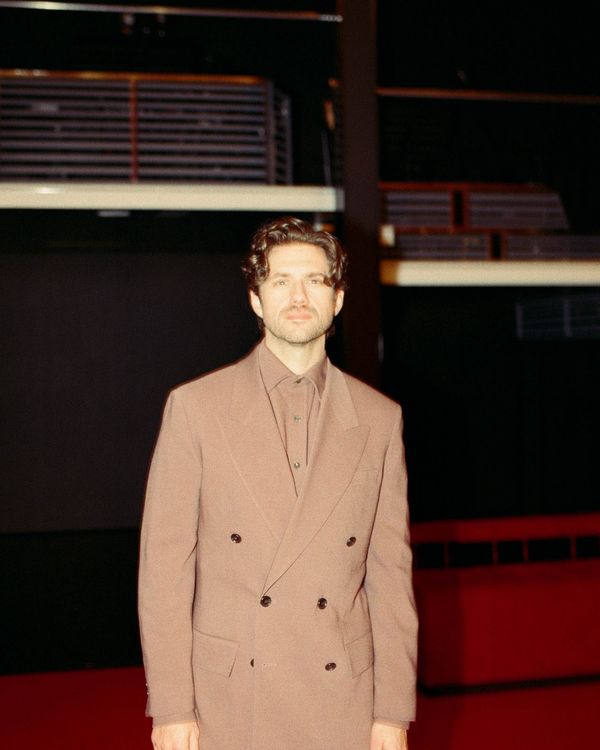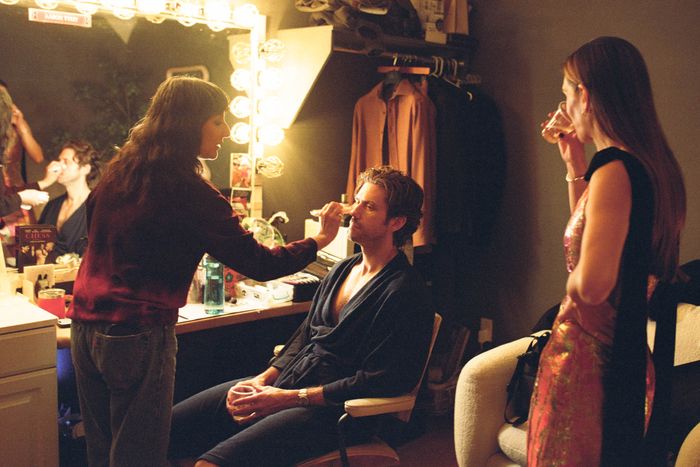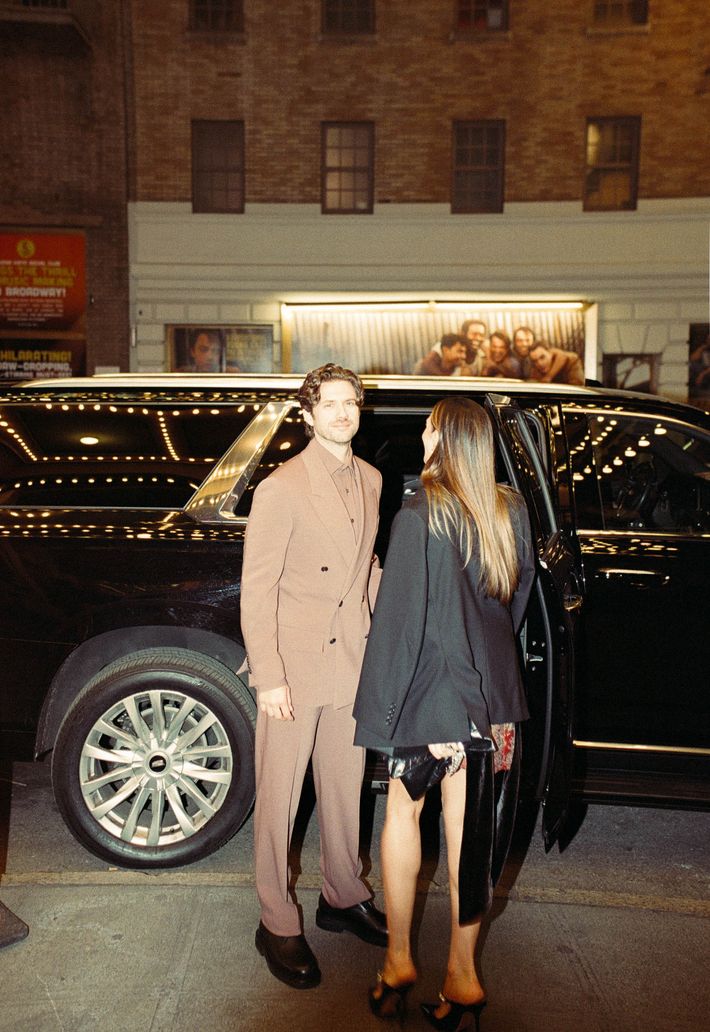
Your performance as Freddie Trumper in Chess is spectacular, and while you make it look easy, I have to imagine that it’s very physically and emotionally difficult work. Freddie is angry, depressed, manic, and conniving — whenever he’s onstage, he’s either singing or shouting, basically. He’s also the only lead character in the show with a big dance number, “One Night in Bangkok.” How did you get into Freddie’s headspace?
I was really, really interested as I was starting to work on Freddie and thinking about Freddie, and I was really curious about his trauma, and about where those mental-health issues were stemming from. This is a kid who was thrust into the spotlight at 11 years old. He was the U.S. champion at that age. And so what does that look like? We learn from “Pity the Child” that he has a very broken home life. He doesn’t have a support system.
How does that compare to your own experience of being in showbiz from a relatively early age? You were only 20 when you joined the touring company of Rent as Steve, and three years later you were starring in Hairspray on Broadway.
When I had success very young, I just had the craziest bout of imposter syndrome you could imagine. But I had the support system to help me through that, and I had people that I could talk to and lean on. And also, I’m really, really lucky. I grew up in the Hudson Valley about an hour away, so when I moved to New York City to start work as an actor, all of my friends from home basically lived here and had nothing to do with the entertainment industry. And so my life didn’t change that much, if that makes sense. It gave me a lot of perspective, but I can very easily imagine having success even younger and not having that support system.
I know you have a really little kid. How do you manage the demands of being in this show and having a sort of normal-ish life with all of the demands of having a family?
My daughter just turned 1, so it’s the first show that I’ve done with a baby at home. The sleep factor is the big question. I get home from the show at 11 and I’m wired and I somehow can get in bed at 12. My wife’s already been in bed and I’m trying to fall asleep, and then the baby hopefully sleeps as late as she can, but she likes to wake at seven, which I know is late for a lot of people, but I’m praying for eight. My wife’s been amazing getting up with her in the morning so I can get a little bit of extra sleep.
Whenever you’re doing eight shows a week, there’s a bit of sacrifice that happens. This show in particular is the hardest show I’ve ever done. It’s the most vocally demanding for sure. I’m screaming and elevating my voice and just operating at this very intense 12-out-of-10 place. The music is very difficult. When I first learned Chess and listened to it in college, it was one of these things that people said, “Oh, nobody ever sings that. It’s all too hard.” And now we’re trying to do it eight times a week. If I try to put the baby down for her afternoon nap and she doesn’t want to go down, I’ll hold her and we’ll nap together. And I just try to grab those moments as much as I can — I can spend time with her, but we also can both rest. I think any parent with a 1-year-old would do that, but I also am doing it to make myself ready to be back onstage as well.
Are there any preshow rituals that you like to do in the hour before the performance?
When I get to the theater, I like to warm up a little bit physically. After that, I actually like to go out onstage every day while the house is still open, just have a moment to look at the audience and just be in the space a little bit. That’s something I’ve always done. Because a night at the theater is so singular, I like to think: Okay, this is where we are tonight. We’re here to try to just allow something to happen. Then I’ll probably eat a little something, I like to have fruit before the show. And then I play a blitz game on chess.com. I’m not very good.
How did you choose your outfit for the Chess opening-night party?
So much of what I wear onstage is black-and-white, and all the Chess marketing is black-and-white. So I definitely wanted to have a little bit of color. Todd Snyder offered to dress me for the opening, and I was very fortunate to be part of their fall campaign this year and have a wonderful relationship with them. And then I also work with a wonderful stylist named Jason Rembert, and he and I had talked about color and the idea of a monochromatic look. And then once Todd and I started sending some ideas back and forth, that was something that I had seen in his runway show last year, and I just loved the idea of it. And it also kind of nods to the little bit of pink that’s in the Chess artwork. And I just thought it was all kind of a combination of all of those things in a great way.
Okay, now for something totally unrelated to Chess. The Thanksgiving scene from Gossip Girl, in which you played Tripp van der Bilt, tends to go viral around this time every year. Do you have any specific memories of shooting that, or any inkling that it would be staying with us many years later?
I had a ball working on that show. That scene was the first time that basically every character was all in one scene. It was like all the different storylines that were happening, all the characters, all the regulars, all the people who were guest-starring at the time, we were all in the scene together. And then when it aired and we heard the music they put over that scene … everything just came together perfectly. And it’s come back into my life because I have a couple of nieces now who are teenagers and they’re watching Gossip Girl for the first time and they have all these questions about it, which has been really funny. It was a great moment in time, and it was a great show that was just part of New York.




